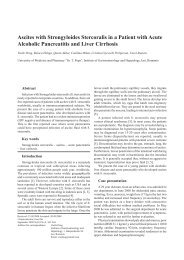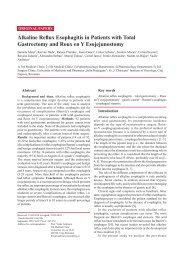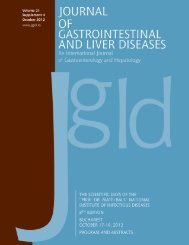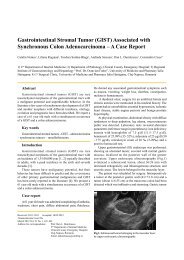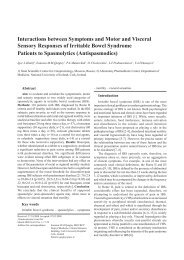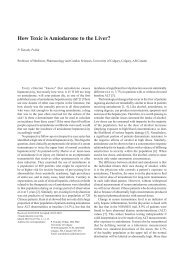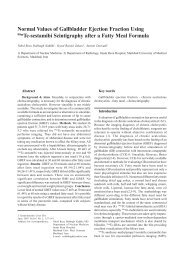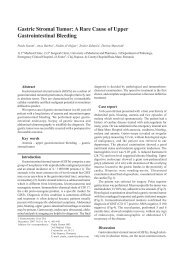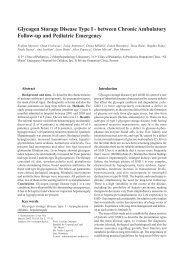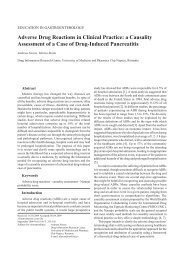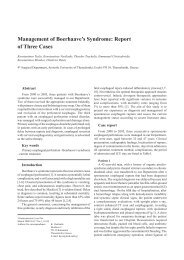Contents - Journal of Gastrointestinal and Liver Diseases
Contents - Journal of Gastrointestinal and Liver Diseases
Contents - Journal of Gastrointestinal and Liver Diseases
Create successful ePaper yourself
Turn your PDF publications into a flip-book with our unique Google optimized e-Paper software.
Effects <strong>of</strong> Pro-Inflammatory Cytokines on the Production <strong>of</strong><br />
Soluble Fractalkine <strong>and</strong> ADAM17 by HepG2 Cells<br />
Sharon L. Turner 1 , David Mangnall 2 , Nigel C. Bird 2 , Maria E. Blair-Zajdel 1 , Rowena A.D. Bunning 1<br />
1) Biomedical Research Centre, Sheffield Hallam University, Sheffield; 2) <strong>Liver</strong> Research Group, Royal Hallamshire<br />
Hospital, University <strong>of</strong> Sheffield, Sheffield, UK<br />
Abstract<br />
Background & Aims: Soluble fractalkine is increased in the liver during times <strong>of</strong> injury; however the effect <strong>of</strong> proinflammatory<br />
cytokines in this process is currently unknown. The aim <strong>of</strong> this study was to determine whether pro-inflammatory<br />
cytokines elevated in patients with hepatocellular carcinoma influence fractalkine shedding from HepG2 cells <strong>and</strong> whether<br />
ADAM17 was involved in this process. Methods: In vitro experiments were performed in the human hepatocellular carcinoma<br />
cell line HepG2. Soluble fractalkine was detected using an ELISA. ADAM17 expression was investigated using quantitative real<br />
time (reverse transcription)-polymerase chain reaction <strong>and</strong> flow cytometry. Short interfering RNA transfection was used to downregulate<br />
ADAM17 expression. Results: Soluble fractalkine was present in supernatants <strong>of</strong> HepG2 cells, <strong>and</strong> was significantly<br />
increased by interleukin-1β (p≤0.005) <strong>and</strong> tumour necrosis factor-α (p≤0.043), but not by interleukin-6 (p≥0.316). This<br />
corresponded to minor increases in ADAM17 protein, but not ADAM17 mRNA, following the same treatments. However, the<br />
down-regulation <strong>of</strong> ADAM17 protein did not affect fractalkine shedding. Conclusions: This study showed that soluble fractalkine<br />
is up-regulated under inflammatory conditions associated with hepatocellular carcinoma development, but ADAM17 does not<br />
appear to be responsible for regulating this process.<br />
Keywords<br />
Fractalkine - ADAM17 - cytokines - cancer - hepatocellular carcinoma - HepG2.



